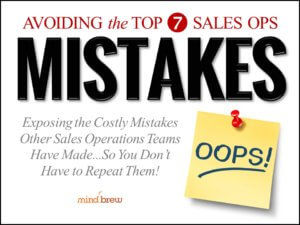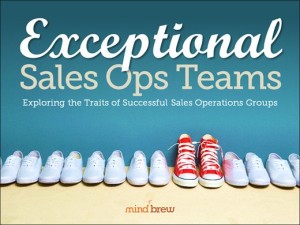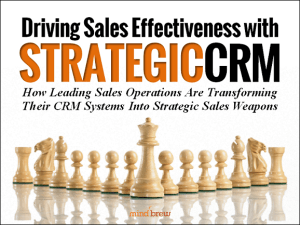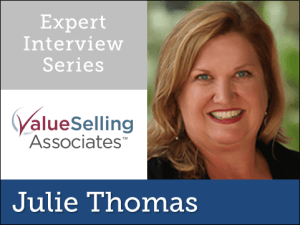My dad has a mental library of favorite sayings and stories he’ll draw from depending on the situation and circumstances. My siblings and I have heard these sayings and stories so many times throughout our lives that we’ve actually taken to numbering them. And whenever the conversation turns to leadership…or the lack thereof…we can almost always count on hearing good ol’ #37:
Unless you’re the lead dog, the view never changes.
Now, to fully appreciate this saying you have to picture a pack of sled dogs and imagine the “scenery” for the dogs in the rear, so to speak. Not pretty. And while this is not an original saying…my dad has plenty of those, too…it does do a fairly good (and graphic) job of illustrating a problem with relying on others for direction.
From my perspective, there are three big reasons most Sales Ops groups should resist the urge to just do as they’re told and let others define their role, set their direction, and establish the scope of their participation and contribution:
- The status quo will not change itself. In my dad’s saying, the pack of sled dogs is akin to the status quo. While minor course corrections may occur here and there, the dogs all stay in line and pull the sled forward…always in the same general direction…and sometimes into a crevasse. The point is that in established organizations…with an established status quo…relying on others for direction will most often just produce more of the same.
- Others are clueless about “real” Sales Ops. How much do others in your organization really know about Sales Ops as a strategic business practice? Sure, others might have some vague, outdated notion of Sales Ops as tactical sales support with a catchier moniker. But odds are, they know very little about what Sales Ops really could…and should…being doing to deliver on its strategic potential and build an unbeatable sales machine.
- Minds at the top can change quickly. While the day-to-day status quo is extremely resistant to change, the perceptions and perspectives of senior management can change quite rapidly. In fact, senior management itself can change quite rapidly should the Board determine that the status quo just isn’t working anymore. So one day, you’re just doing as you’re told and that’s perfectly acceptable…maybe even desirable. The next day, management’s perspective changes and “doing as you’re told” is now evidence of a lack of initiative, leadership, and/or strategic vision.
Of course, I’m not suggesting that you should become a subversive mutineer or dismiss the perspectives and directives of your higher-ups. While I can appreciate how that might provide some level of twisted satisfaction, it’s just not very effective…or good for your career.
But I am saying…as emphatically as I can without resorting to profanity…that you should determine for yourself what your role should be and what you really should be doing, regardless of what anyone else thinks or believes. Don’t wait to be told. Be proactive and figure out how your Sales Ops function can contribute at the highest and most strategic levels.
If your experience is anything like mine, you’ll quickly discover that when you actually have a clear and compelling vision…and you can articulate it…it’s really not that difficult to get others on-board.
Be the lead dog. You’ll like the view.














